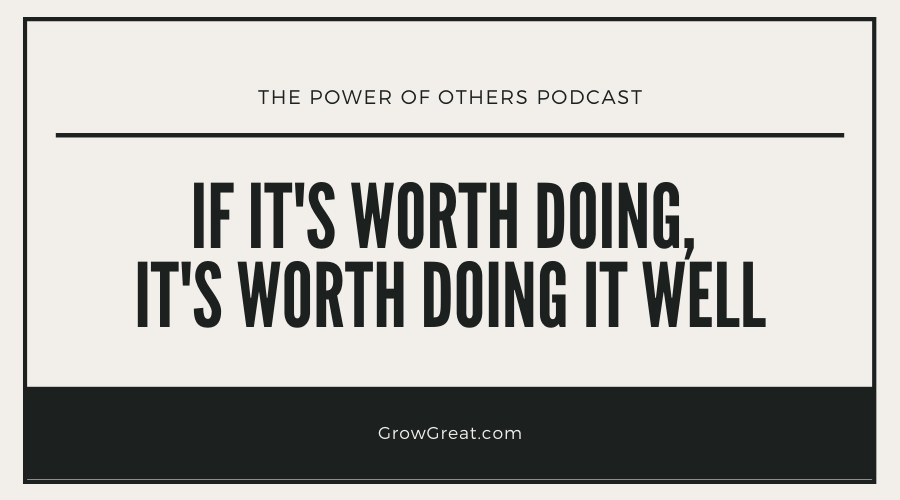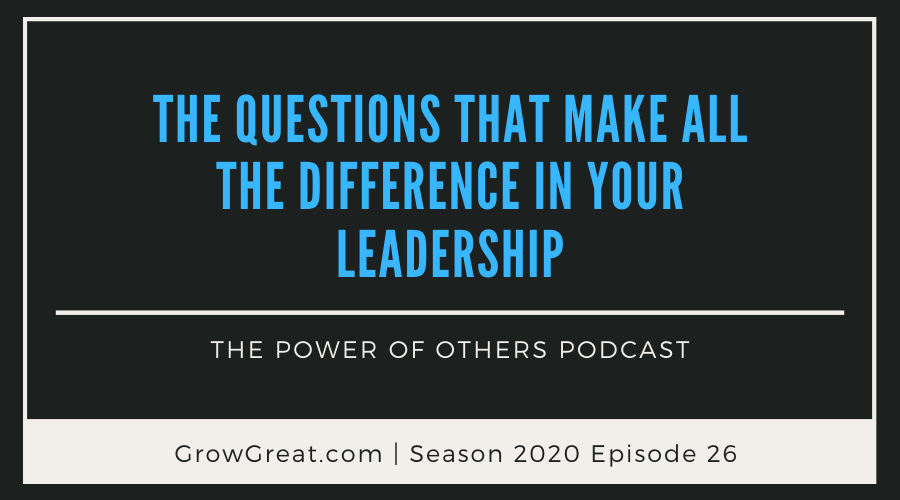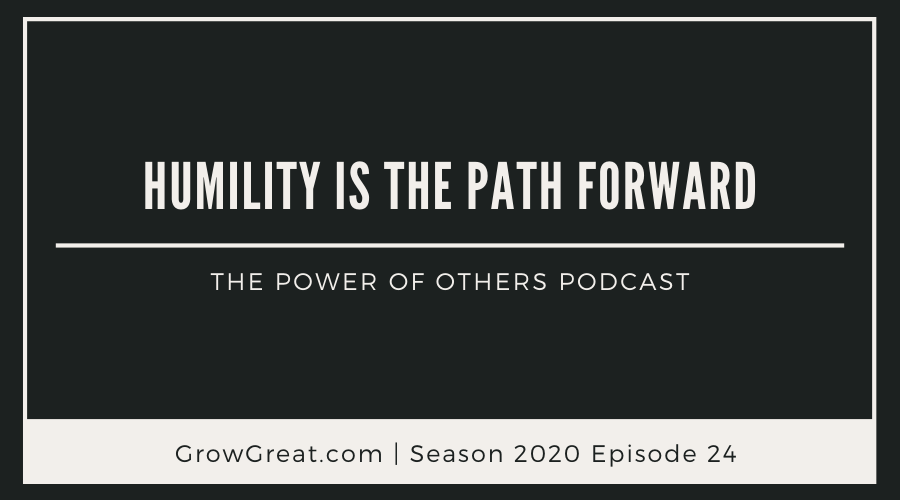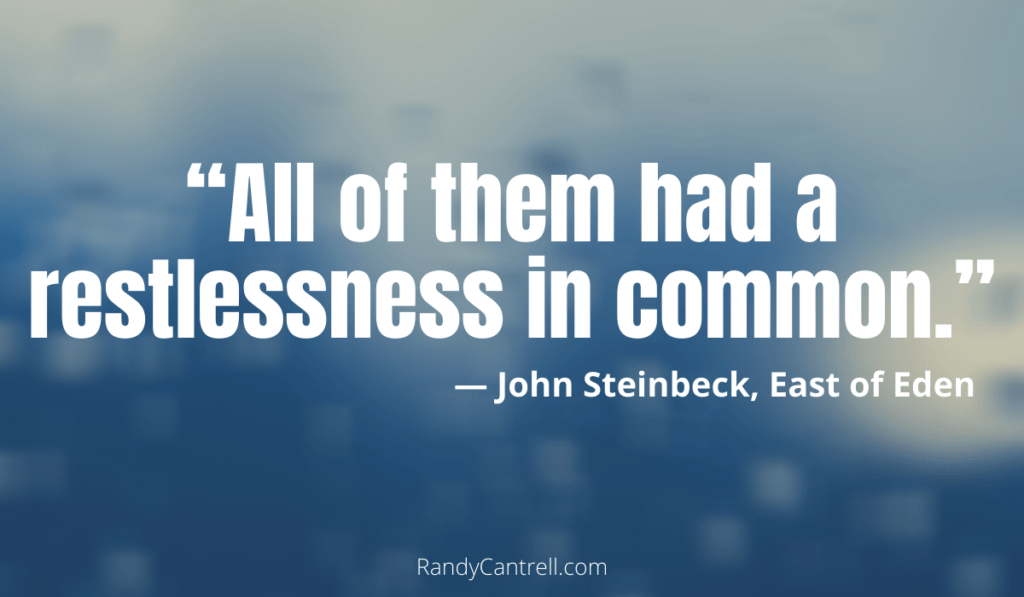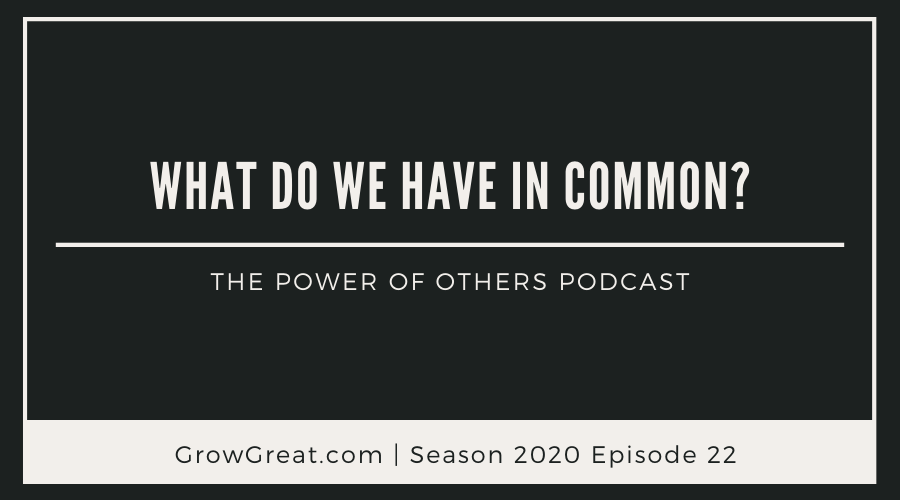If It’s Worth Doing, It’s Worth Doing It Well – Season 2020, Episode 27
Podcast: Play in new window | Download (Duration: 19:39 — 18.0MB)
Subscribe: Apple Podcasts | Spotify | RSS | More
Business folks know the old maxim, “If you don’t have time to do it right, then when will you have time to do it over?”
Experience has proven how true it is. Still, it’s often harder to figure out how to do it right the first time. Sometimes we don’t know how to do it right. Maybe because we lack information. Maybe because we don’t see things clearly. Maybe because we lack what we need. There are many reasons why our efforts to get it right fail.
Recently, I’ve encountered a number of situations where organizations are challenged by their own agendas. For example, there’s a gated community operated by a property owners’ association which is a private, tax-exempt property owners association headed by a general manager, hired by a board of directors who are tasked with serving the needs of the citizens. Well, some years ago the board voted to outsource the management of the gates resulting in security concerns for many citizens. It seems the outsourcing company used nominally trained and compensated employees to man the gates, resulting in a haphazard strictness the citizens of the community wanted. Without a vested interest in the situation, I engaged in a conversation some time back about it with a person who is very vested in it. During that conversation, I made a statement that serves as today’s show title. “If it’s worth doing, it’s worth doing it well.”
I don’t care if the community is gated or not, but if it’s going to gated, I asked my conversation buddy, “then isn’t it worth doing well?” Else, why do it at all? Ditch the whole notion of gates if you don’t want to do it well.
Given enough time it can become blindingly obvious where the canary in the coal mine may be. That is…the thing that seems to indicate where problems reside. If the canary in the coal mine is dying, then the oxygen supply is dangerously low, or non-existent. Keep your eye on the canary and you can improve your odds of staying safe – at least so far as having enough air to breathe is concerned. We can do the same thing with our organizations, teams, and groups. It can be a gated community, a city government, a corporation, a civic group, or a marketing team.
Thousands of podcast episodes are released daily. Who knows how many books are published daily? Or how many articles are posted? And then there’s video content. More hours than any human could possibly watch in a single lifetime. We’re busy reading, watching, and listening to something new. Lifelong learning is an attribute of high achievers…but it’s also an attribute of bored, curious or slothful folks, too. Sometimes we all can find our way into any of those categories. It’s why there’s great truth in the statement, “After all is said and done, more is said than done.”
Doing stuff is hard. Doing it well seems even harder.
Perhaps the most famous quote of Southwest Airlines founder Herb Kelleher is…
“We have a strategic plan — it’s called doing things.”
Herb omitted one other important point. Southwest Airlines has historically been committed to doing things well. Not everybody is.
Let’s start with whatever decision has already been made. We can second-guess it 8 ways to Sunday, but we’ll save that discussion for another time. Right now, I’d like you to think about a decision that’s been made – like the decision to have a gated community. Right, wrong or indifferent…who cares? The decision is made, “We’re going to have a gated community.”
Now, armed with that decision our next question is, “How will we manage that?”
Nobody is going to pipe up and say, “Poorly. Let’s do it poorly.” But it happens. We want to consider why and figure out how we might find a remedy.
I’m a fan of the NHL. The Stanley Cup Playoffs are exciting. We never experience it this time of year, but during this pandemic, all of us are experiencing messed up calendars. Unless a game goes into overtime, NHL games consist of three 20-minute periods. That’s 60 minutes of actual playing time for regulation play. Right now teams are playing to enter the conference championship. Teams are competing to stay alive in best of 7 series. Well, every game decides a winner and a loser. Every series will result in a winner or loser. The winners jump for joy and celebrate feeling as good as they’ve ever felt. The losers sulk off the ice in disgrace, regretful of their lost opportunities and squandered chances. Seems to me that doing it well has an exponentially higher pay off than doing it poorly. But both teams invested the same time to play the game. It’s likely both teams invested similar time preparing, too. For one, it’s the best feeling in the world. For the other, it’s the worst.
Are both teams equally committed? Maybe. Maybe not. But it begins there. That’s where it begins with you and your situation. The commitment to do it – whatever it is – well. To execute it just as well as you possibly can. To devote yourself and whatever resources are necessary to do it well.
So let’s go back to the gate management being outsourced. The decision was made by the board for two reasons. One, to save money. There’s your first clue that doing it well wasn’t the priority. Two, to offload the burden to somebody else. The bottom line is the board was more willing to write a check hoping it’d be a smaller check while simultaneously avoiding the hassles of managing the gates themselves.
Let me give you some context. You’ve got a board of directors comprised of five property owners. They’ve got a general manager (CEO) in place earning a strong 6-figure salary with a long list of perks. There’s a budget for staff to help the CEO perform the work. As you might imagine, the bulk of the budget is spent on staff compensation. The place was established many years ago as a gated community. So that decision was made at the very beginning.
How well do you suppose leadership is doing when they can’t seem to do the gate management well?
Turns out the place has been plagued for years with incompetence, budget overruns, and general chaos and discontentment. They’ve devoted years of work in a losing effort that might have been avoided if they’d make up their minds that they were going to do things well. Gates or no gates? Who cares? They can and did decide. But they neglected to decide they’d do it well. Well enough to be world-class at it.
I can’t tell you why. They may not even be able to tell you. But the results have been devastating. Lost money. Unhappy residents. Lower security. Lawsuits. It’s been a major fiasco that might have been avoided.
Let’s get back to you and a decision that’s already been made. What “gate” decision has been made by your organization, team, or group? How well are you doing with that decision?
Go back and revisit what’s been done so far. Face the reality of how committed you are to do it well. And let’s define well with terms like remarkable, dazzling, and spectacular. What do you suppose gate management for the community would look like if the board was fully committed to making management of the gates remarkable, dazzling, and spectacular? I’m supposing that a CEO earning around $300K with a fully compensated staff and five board members could figure out a way to get that done! Of course, I could be wrong. 😉
I’m betting whatever decision you’re thinking of right now in your organization has the same potential for remarkable, dazzling, and spectacular.
It all begins with a commitment to do it well. Yes, there must be the necessary talent and skill. There must be necessary resources. But those don’t matter if we fail to commit ourselves fully to doing it well. And if we commit to doing it well, then we’ll figure out the missing ingredients.
As we begin this new month of September, let’s take a look at decisions we’ve already made – decisions that aren’t going as well as we’d like, or as well as we know they could. Let’s look in the mirror as we wonder WHY. Then, let’s take the time to answer the question, “Why isn’t this being done well?” Better yet, “How can we fix this? How can we turn this around and make the results remarkable, dazzling, and spectacular?”
We all have a canary or multiple canaries that indicate how well we’re executing decisions. The gated community’s canary are the gates themselves. What are yours? If they’re not being done well, then your life as an organization, team, or group is at risk.
Let’s get busy fixing what ails us. Today.
And if we don’t want to do it well, then may I suggest that we forego doing it at all. That’s why I made this comment regarding the gates. “If you guys don’t want to commit to managing the gates well – in a remarkably well way – that’s fine. Then ditch the idea of having gated community. Tear the gates down and open this place up. Why waste time and energy doing a poor job?”
Why indeed?
Be well. Do good. Grow great.

If It’s Worth Doing, It’s Worth Doing It Well – Season 2020, Episode 27 Read More »
